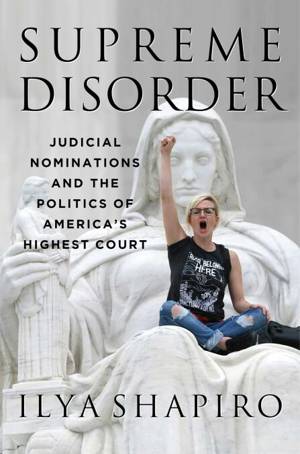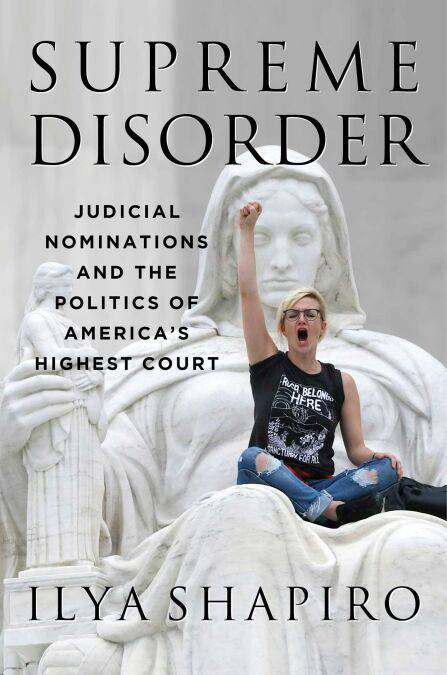
- Afhalen na 1 uur in een winkel met voorraad
- Gratis thuislevering in België vanaf € 30
- Ruim aanbod met 7 miljoen producten
- Afhalen na 1 uur in een winkel met voorraad
- Gratis thuislevering in België vanaf € 30
- Ruim aanbod met 7 miljoen producten
Zoeken
Supreme Disorder E-BOOK
Judicial Nominations and the Politics of America's Highest Court
Ilya Shapiro
E-book | Engels
€ 14,53
+ 14 punten
Uitvoering
Omschrijving
NAMED ONE OF THE BEST BOOKS OF 2021: POLITICS BY THE WALL STREET JOURNAL
"A must-read for anyone interested in the Supreme Court."—MIKE LEE, Republican senator from Utah
Politics have always intruded on Supreme Court appointments. But although the Framers would recognize the way justices are nominated and confirmed today, something is different. Why have appointments to the high court become one of the most explosive features of our system of government?
As Ilya Shapiro makes clear in Supreme Disorder, this problem is part of a larger phenomenon. As government has grown, its laws reaching even further into our lives, the courts that interpret those laws have become enormously powerful. If we fight over each new appointment as though everything were at stake, it’s because it is.
When decades of constitutional corruption have left us subject to an all-powerful tribunal, passions are sure to flare on the infrequent occasions when the political system has an opportunity to shape it. And so we find the process of judicial appointments verging on dysfunction.
Shapiro weighs the many proposals for reform, from the modest (term limits) to the radical (court-packing), but shows that there can be no quick fix for a judicial system suffering a crisis of legitimacy. And in the end, the only measure of the Court’s legitimacy that matters is the extent to which it maintains, or rebalances, our constitutional order.
"A must-read for anyone interested in the Supreme Court."—MIKE LEE, Republican senator from Utah
Politics have always intruded on Supreme Court appointments. But although the Framers would recognize the way justices are nominated and confirmed today, something is different. Why have appointments to the high court become one of the most explosive features of our system of government?
As Ilya Shapiro makes clear in Supreme Disorder, this problem is part of a larger phenomenon. As government has grown, its laws reaching even further into our lives, the courts that interpret those laws have become enormously powerful. If we fight over each new appointment as though everything were at stake, it’s because it is.
When decades of constitutional corruption have left us subject to an all-powerful tribunal, passions are sure to flare on the infrequent occasions when the political system has an opportunity to shape it. And so we find the process of judicial appointments verging on dysfunction.
Shapiro weighs the many proposals for reform, from the modest (term limits) to the radical (court-packing), but shows that there can be no quick fix for a judicial system suffering a crisis of legitimacy. And in the end, the only measure of the Court’s legitimacy that matters is the extent to which it maintains, or rebalances, our constitutional order.
Specificaties
Betrokkenen
- Auteur(s):
- Uitgeverij:
Inhoud
- Aantal bladzijden:
- 256
- Taal:
- Engels
Eigenschappen
- Productcode (EAN):
- 9781684510726
- Verschijningsdatum:
- 21/09/2020
- Uitvoering:
- E-book
- Beveiligd met:
- Adobe DRM
- Formaat:
- ePub

Alleen bij Standaard Boekhandel
+ 14 punten op je klantenkaart van Standaard Boekhandel
Beoordelingen
We publiceren alleen reviews die voldoen aan de voorwaarden voor reviews. Bekijk onze voorwaarden voor reviews.











